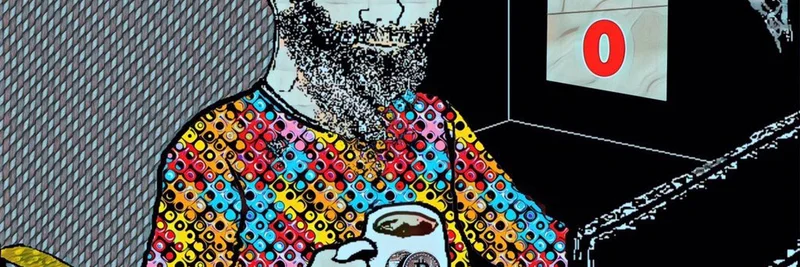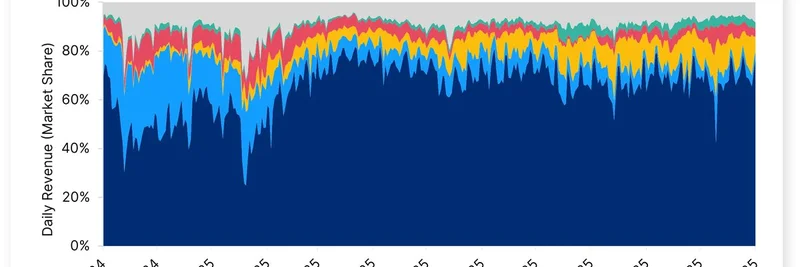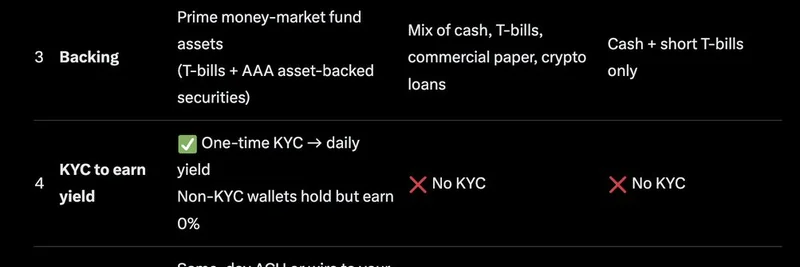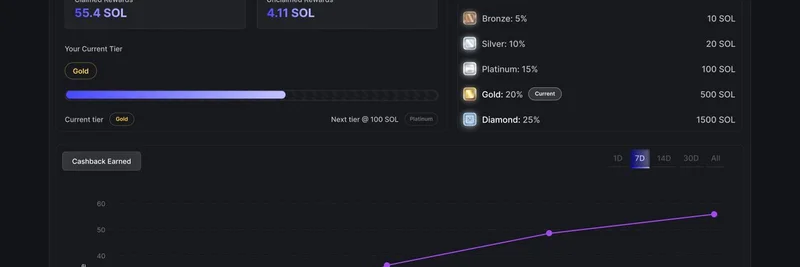In the ever-volatile world of cryptocurrency, where meme tokens can skyrocket overnight and blockchain innovations promise to reshape finance, politics has become an unwelcome guest at the party. A recent tweet from @basedkarbon on X (formerly Twitter) perfectly encapsulates the frustration many in the crypto community feel about this partisan entanglement. The post, which quotes prominent crypto lawyer Jake Chervinsky, highlights how the launch of World Liberty Financial—a DeFi (decentralized finance) project backed by the Trump family—could derail much-needed market structure legislation in the U.S. Senate.
The meme in the tweet shows a disheveled character staring at a screen, coffee mug emblazoned with a Bitcoin logo in hand, and a sign reading "Days without Suicidal Thoughts: 0." A gun lies ominously on the table, symbolizing the despair that comes from watching the crypto industry get weaponized in political battles. It's a stark, humorous-yet-dark commentary that's all too relatable for those who've ridden the highs and lows of meme coins and altcoins.
Understanding the Context: World Liberty Financial and Its Political Baggage
World Liberty Financial, often abbreviated as WLFI, is a decentralized finance protocol launched in 2024 with ties to former President Donald Trump and his family. The project aims to bridge DeFi with traditional finance (TradFi), offering tools for lending, borrowing, and trading without intermediaries. However, its association with the Trump brand has turned it into a lightning rod for controversy. The family holds a massive stake in the $WLFI token, recently valued at billions, sparking debates about conflicts of interest and the politicization of crypto.
Jake Chervinsky's quoted tweet points out a critical issue: passing crypto-friendly legislation in the Senate requires bipartisan support, including votes from Democrats who may now view pro-crypto stances as politically toxic due to WLFI's Republican leanings. Market structure bills, which would clarify regulations for digital assets like classifying certain tokens as securities or commodities, are essential for mainstream adoption. Without them, the industry remains in regulatory limbo, affecting everything from major blockchains to niche meme tokens.
The Four-Year Cycle: A Perpetual Loop for Crypto Enthusiasts
@basedkarbon's response drives the point home: "Our entire industry has become a partisan weaponized talking point. Back to 4 year cycles where dems try to destroy crypto and then republicans launch and promote their own scams. Back and forth, forever and ever." This refers to the U.S. election cycle, where every four years, shifts in administration could swing policies wildly. Under Democratic leadership, we've seen aggressive enforcement from bodies like the SEC (Securities and Exchange Commission), which oversees securities laws and has cracked down on unregistered crypto offerings. On the flip side, Republican-backed projects like WLFI are often criticized as hype-driven ventures lacking substance—sometimes bordering on scams in the eyes of skeptics.
For meme token creators and traders, this cycle is particularly brutal. Meme coins, like Dogecoin or newer entrants on Solana and Ethereum, thrive on community hype and viral moments. But regulatory uncertainty can kill momentum overnight. If Senate bills stall, it means delayed clarity on taxes, custody rules, and exchange operations, making it harder for meme projects to scale or attract institutional money.
How This Affects Meme Tokens and the Broader Blockchain Ecosystem
Meme tokens aren't just jokes; they're a gateway for many into blockchain technology. Projects like Pepe or Shiba Inu have built massive communities, but they operate in a gray area legally. The partisan divide exacerbated by WLFI could lead to more enforcement actions under one party and promotional pumps under another, creating boom-bust cycles that burn retail investors.
On a positive note, this meme tweet has sparked discussions across X, with replies echoing similar sentiments. One user quipped about blockchain transcending politics, while another lamented the return to four-year swings. It's a reminder that the crypto space, including meme culture, craves stability to innovate freely.
Looking Ahead: Can Crypto Break Free from Politics?
As we head into another election season, the question remains: Will the industry unite to push for neutral, tech-focused policies? Organizations like the Blockchain Association, where Chervinsky serves on the board, are working toward that. In the meantime, memes like this one serve as both catharsis and a call to action for blockchain practitioners.
If you're diving into meme tokens or DeFi, stay informed—follow updates on projects like WLFI and advocate for balanced legislation. After all, in crypto, knowledge isn't just power; it's survival.




